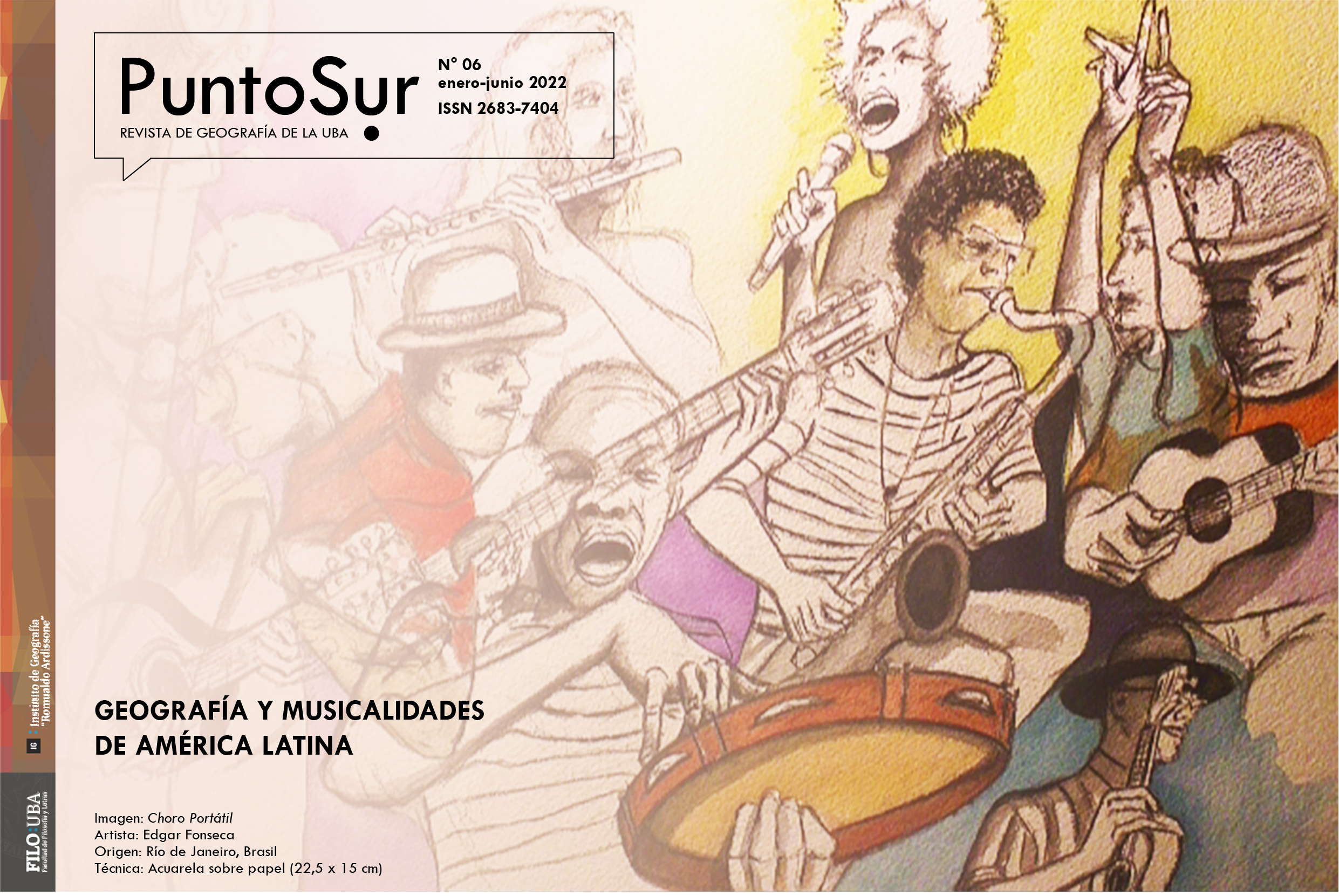Rosa and the inaudible singer: no-place, places of memory and voice-place nexus
Abstract
Based on the experience of the Aymara singer and intercultural educator Rosa Qhispi (Tarapacá Region, northern Chile), the link between song and place is approached in three crossed aspects. The one related to the traditional role (place) of the Andean singer makes explicit her lack of a place of enunciation configured by a historical and structural silencing, perpetuated in the neoliberal interculturality, that determines its inaudibility. The geographic one refers to migration to the city, uprooting and the translocal situation that characterizes Aymara subjects in the region, in permanent transit between urban and rural spaces. Finally, in the mnemic dimension, musical practices are proposed as places of memory, as instances of recreation of collective memory that are activated in different spaces and contexts, with different degrees of territorial linkage. The album, as a delocalized place of memory, constitutes a fundamental tool, allowing Rosa to perform and project her role according to her own notions of tradition and interculturality. The animals present in the songs enhance the voice-place nexus of singing with community and nature.Downloads
Download data is not yet available.
References
Augé, M (1992). Non-lieux. Introduction á une anthropologie de la surmodernité. París: Editions de Seuil.
Bieletto, N. (2016). Lo inaudible en el estudio histórico de la música popular. Texto de reflexión crítica. Resonancias, 20(38), 11-35.
De la Cadena, M. (2015) Earth beings: ecologies of practice across Andean worlds. Londres: Duke University Press.
De Nora, T. (2000). Music in Everyday Life. Cambridge: Cambridge University Press.
Diaz, A. (2019). Y llegaron con cadenas. Las poblaciones afrodescendientes en la historia de Arica y Tarapacá, Siglos XVII-XIX. Iquique: Ediciones Universidad de Tarapacá.
Gundermann, H. (2001). Procesos regionales y poblaciones indígenas en el norte de Chile. Un esquema de análisis con base en la continuidad y los cambios de la comunidad andina. Estudios Atacameños, 21(1), 89-112.
Mamani, M. (2010). Kirkir Warmi: identidad y rol de la mujer aymara en el desarrollo musical del norte chileno. Revista Musical Chilena, 64(213), 90-102.
Mamani, M. (2017). Patrimonio Cultural de K´illpha. Iquique: Ediciones Universidad de Tarapacá.
Nora, P. (2009). Los lugares de la memoria. Santiago: Lom Editores.
Spivak, G. (1994). Can the Subaltern Speak? En P. Williams y L. Chrisman (Eds), Colonial Discourse and Post-Colonial Theory (pp. 66-111). Nueva York: Columbia University Press.
Walsh, C. (2012). Interculturalidad crítica y (de) colonialidad. Quito: Abya-Yala.
Bieletto, N. (2016). Lo inaudible en el estudio histórico de la música popular. Texto de reflexión crítica. Resonancias, 20(38), 11-35.
De la Cadena, M. (2015) Earth beings: ecologies of practice across Andean worlds. Londres: Duke University Press.
De Nora, T. (2000). Music in Everyday Life. Cambridge: Cambridge University Press.
Diaz, A. (2019). Y llegaron con cadenas. Las poblaciones afrodescendientes en la historia de Arica y Tarapacá, Siglos XVII-XIX. Iquique: Ediciones Universidad de Tarapacá.
Gundermann, H. (2001). Procesos regionales y poblaciones indígenas en el norte de Chile. Un esquema de análisis con base en la continuidad y los cambios de la comunidad andina. Estudios Atacameños, 21(1), 89-112.
Mamani, M. (2010). Kirkir Warmi: identidad y rol de la mujer aymara en el desarrollo musical del norte chileno. Revista Musical Chilena, 64(213), 90-102.
Mamani, M. (2017). Patrimonio Cultural de K´illpha. Iquique: Ediciones Universidad de Tarapacá.
Nora, P. (2009). Los lugares de la memoria. Santiago: Lom Editores.
Spivak, G. (1994). Can the Subaltern Speak? En P. Williams y L. Chrisman (Eds), Colonial Discourse and Post-Colonial Theory (pp. 66-111). Nueva York: Columbia University Press.
Walsh, C. (2012). Interculturalidad crítica y (de) colonialidad. Quito: Abya-Yala.
Published
2022-10-31
How to Cite
Mena, R. (2022). Rosa and the inaudible singer: no-place, places of memory and voice-place nexus. Punto Sur, (6). https://doi.org/10.34096/ps.n6.11349
Section
Dossier

 Important notice
Important notice




















